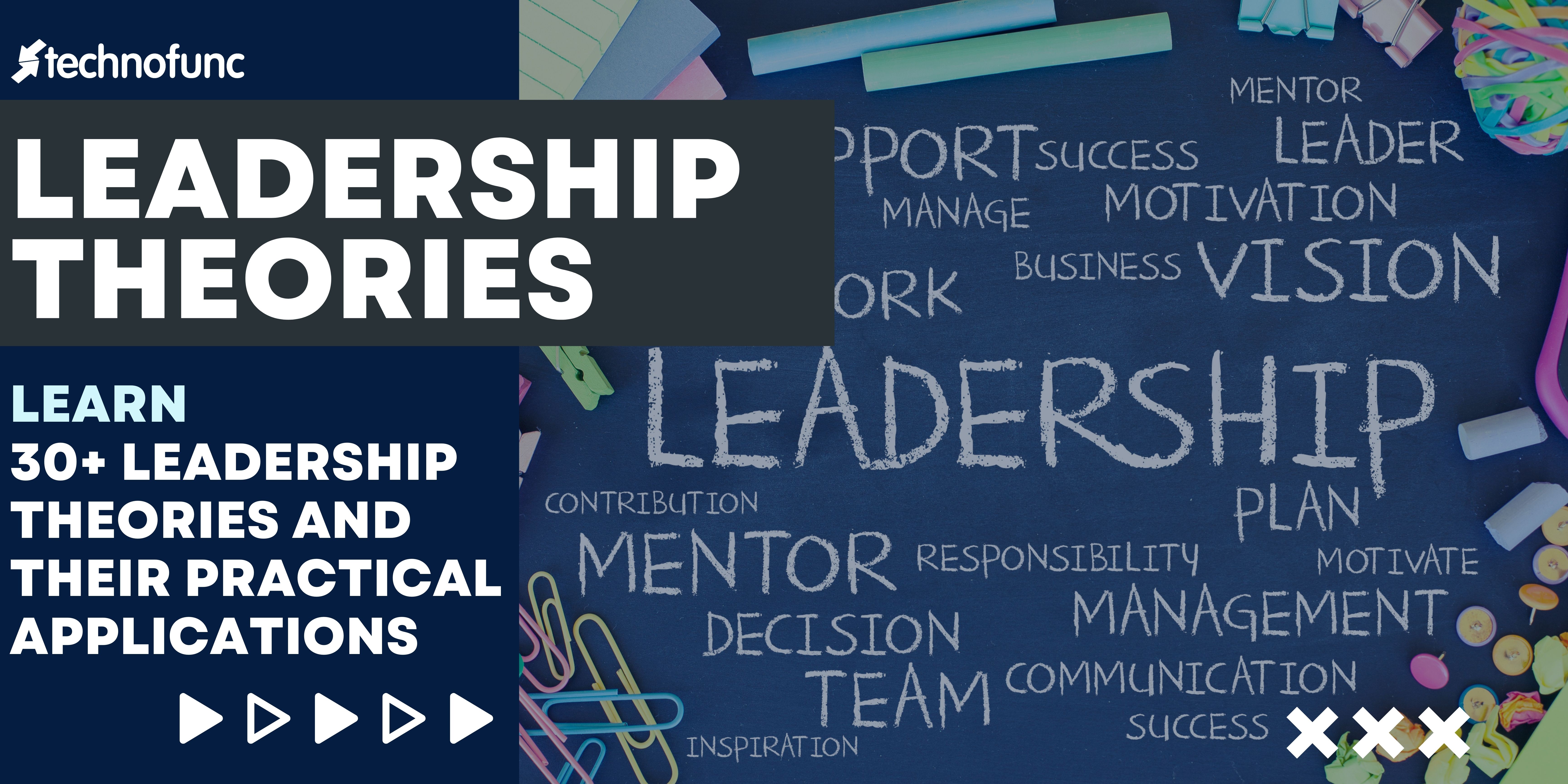- Home
- Business Processes
- Industry Knowledge
- Aerospace Industry
- Automotive Industry
- Banking Domain
- BFSI Industry
- Consumer/ FMCG Industry
- Chemicals Industry
- Engineering & Construction
- Energy Industry
- Education Domain
- Finance Domain
- Hospitality Domain
- Healthcare Industry
- Insurance Domain
- Retail Industry
- Travel and Tourism Domain
- Telecom Industry
- Leadership Skills
- eLearning
- Home
- Leadership
- Leadership Theories
Leadership Theories

Theories on Leadership
Learn how and why certain individuals become leaders, theoretical approach on leadership and how to apply leadership in the real-world organizations.
TechnoFunc brings to you various theories on leadership to advance your understanding of different approaches to leadership and learn new ways to practice leadership more effectively. Start building your foundations of Leadership. There is a wide and ever growing interest and different schools of thoughts in the study of leadership as it's so important for success of individual, organization and nations. Over time, a number of theories of leadership have been proposed to explain the concept and complexities of the leadership process. Quickly enhance your leadership skills and boost your leadership abilities.!
Charismatic Theory

Charismatic leadership is a trait-based leadership theory where the leaders act as visionary driven by their convictions and motivate their followers to work towards common vision using their charm and persuasiveness. These charismatic leaders act as role models and exhibit extraordinary characteristics that inspire devotion and motivation in followers to persuade change. Leaders are able to cultivate a profound sense of trust with the group of followers.
Cognitive Resource Theory

The cognitive resource theory states the influence of the leader's resources on his or her reaction to stress. The cognitive resources of a leader are experience, intelligence, competence, and task-relevant knowledge. Stress is common in resource managing situations, and this cognitive theory emphasizes how intelligence and experience are each best under different stress situations. This theory is the reconceptualization of the Fiedler model.
Contingency Theories in Action

Contingency theory suggests matching the best leader to a specific situation based on situational factors and the leadership style. The practical application of theory can be done in various ways. The workplace example is to determine the best candidate for a given set of requirements using the LPC score. Applying the model to determine a leader's ability to adapt in the scenario of a new project etc..
Contingency Theories of Leadership

Contingency theories of leadership focus on both the leader's persona as well as the situation/environment in which that leader operates. These theories consider the context of leadership which means whether or not the leadership style suits a particular situation and states that a leader can be effective in one circumstance and a failure in another one. A leader will be most effective when he applies the right leadership style to a given situation and environment around him. Contingent leaders are flexible and adaptable.
Continuum of leadership

Continuum of leadership is a leadership theory based on the relationship between the level of freedom given to the team and the level of authority used by the manager. The chosen leadership style will depend on multiple factors, including the leader's personality.
Explore Our Free Training Articles or
Sign Up to Start With Our eLearning Courses

About Us
Learning
© 2023 TechnoFunc, All Rights Reserved